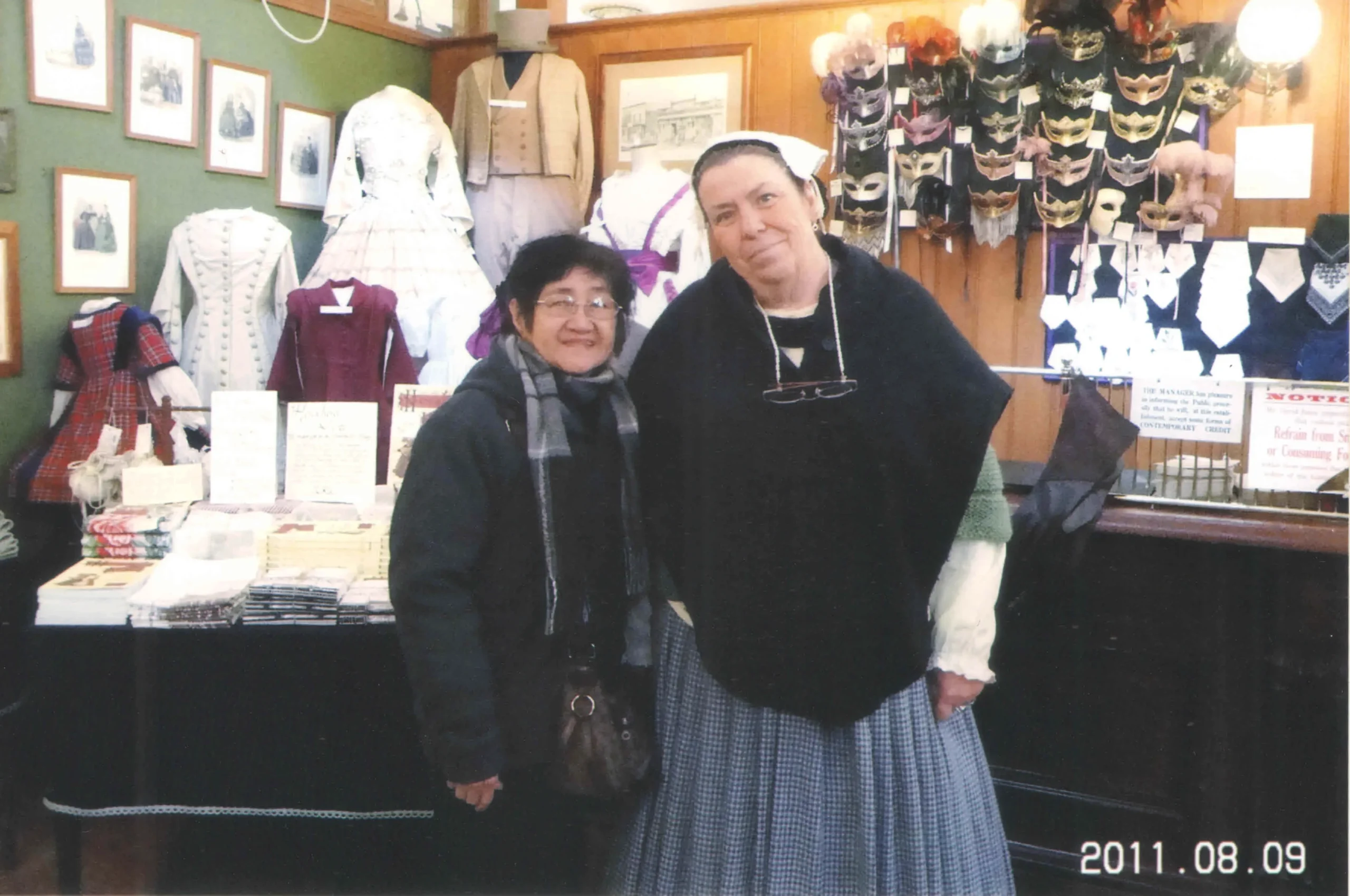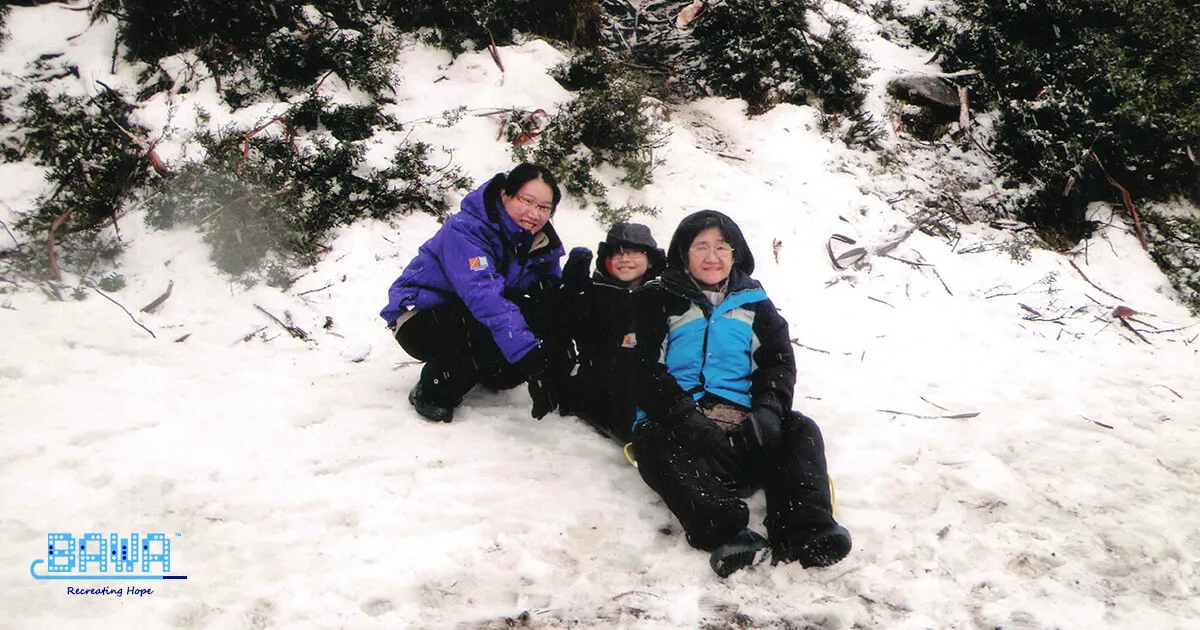People, us included, experienced a range of feelings from sadness to being overwhelmed when in this situation. We opt to put our (then) studies aside a little to spend more time with her focusing on helping her adjust. She refuse her state. For one thing, she is very independent and could even prepare us our meals. To the very end, she assumed the role of super grandma.

How to care for our blind elderly parent or relative (in the perspective of how we care for our blind elderly grandmother)
1. Having a support group
Visually impaired often experience loneliness from society as it is hard for them to get outside and interact with other people due to lack of social awareness and support. People are people. By nature, we are social beings who enjoy interaction with each other and getting involved with social activities.
At times, she just do not feel like going outside. Thus, we would invite her friends over to share and have conversations (about cooking recipes, tips and tricks to make her secret chili sauce, mahjong sessions, her experiences travelling with us to new places—Taiwan, China, Australia). In other words, a support group of some sort to keep her socially active, to channel the positive energy to live a happy life, and for her to feel less lonely. This initiative, too, brought life to her equally elderly peers.
2. Encourage self-reliance
Caring for a blind person does not mean you have to be with them 24 hours a day, instead understand and give them the support both mentally and physically. Instead of assuming, it is best to ask them for what assistance they require as at times it might not be obvious. Although living with vision impairment, it is vital to encourage self-reliance.
When our late grandmother say she can manage the task at hand, we respect her decision and let her go with it. We let her cook and do whatever activities she wanted.
3. Listen and Be part of their life
As stated in point number 2, never assume what assistance, wants and needs they require and truly listen and be part of their life.
Our grandma always wanted to see and feel snow falling from the sky. Our trip to Jeju Island, South Korea, according to her, was a little bit disappointing as snow was already all over the ground as it was late winter. We came up with an elaborate plan to bring her to Australia during winter—to visit Mt Buller. Zero degrees Celsius outside and she went out to enjoy riding the toboggan while its snowing.
Also, for more such articles and to be part of our #BAWACane community, subscribe to our mailing list and we will be in touch with you.
We hate spam emails as much as you do.
Till next time, stay tuned!
Related Post:
Read on how to cope with falling over due to blindness here.
Read on how to guide a visually impaired person here.
BAWA Cane aims at minimising such accidents by using advanced technology that is typically used for other purposes to enrich the lives of the blind and visually impaired by using a clip-on device that can equip them with a digital smart white cane to detect almost any obstacle that could cause problems. This allows them to be more confident while moving around in unfamiliar surroundings.
Cover photo: Stella, Joel and our Grandma at Mt Buller, Australia.
Parigna Horp, during his internship with BAWA Tech, cross referenced some of the more generic ways, tips, and tricks to care for people with vision loss with our own personal experiences caring for our late grandmother.
